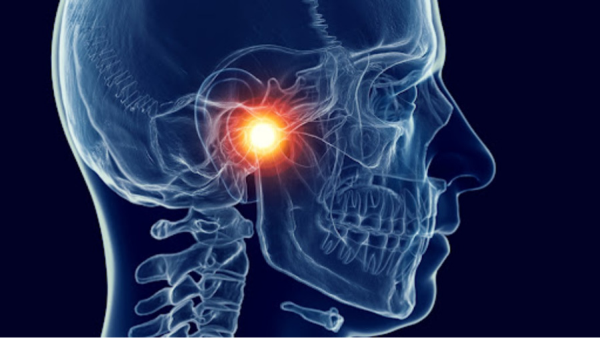Are you worried about teeth grinding? If yes, you have landed on the right spot for the solution! Teeth grinding is a common disorder that takes place unconsciously at night. This happens while sleeping or during stressful situations. As helpful as it may be at certain times, this kind of habit is extremely destructive to teeth and gums, as well as a possible cause of TMJ (temporomandibular joint dysfunction) disorder.
In this blog, we will learn about how teeth grinding is related to TMJ and all the possible solutions for TMJ problems. Read on!
How Teeth Grinding Causes TMJ Disorder
Teeth grinding is very damaging to the temporomandibular joint, and it puts significant pressure on muscles around the jaw, often resulting in tension and stress. It should be noted that the specified constant pressure on the TMJ can cause inflammation and irritation of this joint throughout time as well as result in TMJ disorder.
Teeth grinding is present in different intensities among individuals. Some would clench their teeth now and then, while others tend to grind their teeth and jaws enough to wear their teeth and jaws out for good. The important thing to remember is the need to look for such triggers and treat the TMJ disorder before it gets out of hand.
Symptoms of TMJ Disorder and Teeth Grinding
It is very well known among people that teeth grinding and TMJ disorder have many symptoms in common; therefore, their differentiation is rather complicated. Some of the most common signs include:
- Jaw pain or tenderness
- Headaches, mostly when waking up
- Smacking noises each time one opens the mouth
- Numb chin or an inability to chew food properly.
More specifically, general symptoms include stiffness in the jaw muscles.
- Headache, earache, or fullness in the ears
If one of the symptoms listed is frequent, it is advised to consult a doctor.
Treatment of Teeth Grinding and TMJ Condition
Below are some of the most effective solutions to consider:
- Mouthguards and Splints
Mouth guards are the most prescribed relief medication for teeth grinding and TMJ disorder, especially if the patient is an adult. These gadgets assist in preventing disastrous impacts on the teeth and, at the same time, lessen tension on joints in the jaw.
- Physical Therapy
TMJ disorder treatment can also be managed through physical therapy. Specific exercises that can help eliminate tension from teeth grinding include jaw, neck, upper back, and flexibility exercises. A physical therapist can also demonstrate some relaxation that would reduce the stress that causes bruxism.
- Required Stress Management Tools
Stress is a primary cause of teeth grading, and averting stress is crucial in controlling TMJ effects. Mindfulness, meditation, and deep breathing need to be adopted to help ease the tension in the muscles on the jaw, and they will assist in minimizing grinding.
- Botox Injections
This is widely used for patients with severe bruxism, which is considered a TMJ disorder treatment by injecting Botox. If injected into the jaw muscles, Botox works by calming contractions so teeth clenching is diminished, alleviating TMJ. This treatment provides only short-term results and may require some topping off every few months to help maintain those results.
- Orthodontic Treatment:
Occasionally, teeth grinding and TMJ disorder arise due to teeth arrangement or poor bite positioning. Braces or aligners are forms of orthodontic treatment that may address the malpositioning of your teeth and decrease pressure on the TMJ. This long-term solution not only avoids teeth clenching but also enhances the efficacy of your jaw.
Conclusion
The connection between teeth grinding and TMJ is clear: the force exerted on the jaw through grinding exposes it to developing or, in the worst case, causing TMJ disorder. If you believe that teeth grinding is the cause of jaw pain or discomfort, that is an excellent time to see an orthodontist professional discuss TMJ disorder treatment. It leaves you with various choices, including mouth guards and physiotherapy, botox injections, orthodontic treatment, and any other care that might advise.

Leave a Reply
You must be logged in to post a comment.